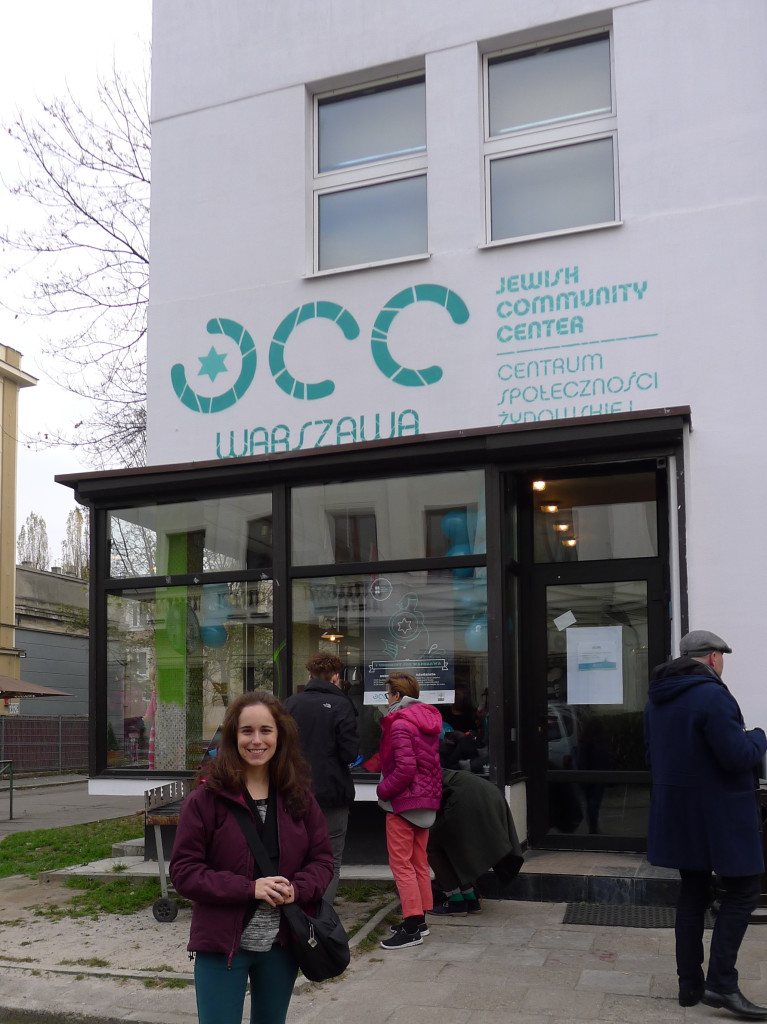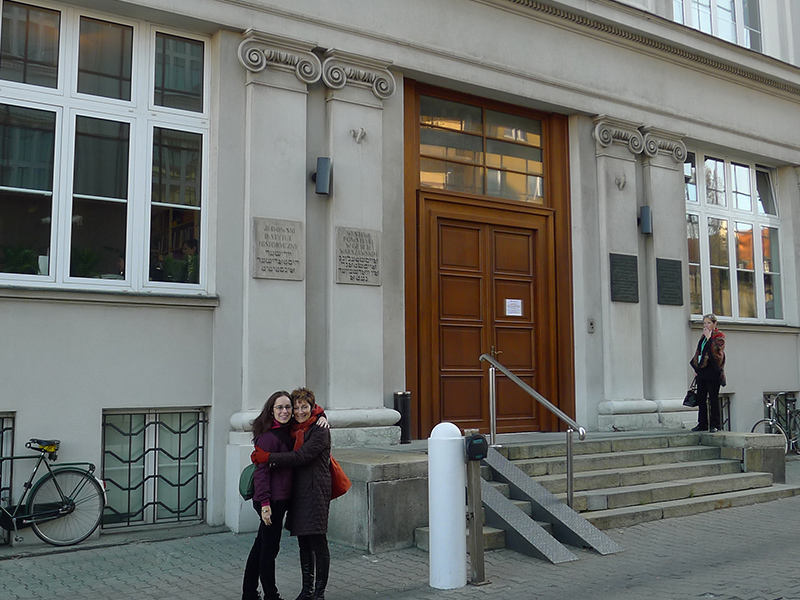With Purim, we entered the season of memory, remembering Mordechai and Esther’s triumph in saving their people. This week, we will remember the Exodus from Egypt. We will remember the destruction of the Holocaust on Yom Hashoah. One week later, we will remember the establishment of the State of Israel followed by the day of memory for Israel’s fallen soldiers. We remember victory and devastation.
When do we remember the communities that birthed modern Jewish thought and culture? When do we remember 200-year-old Jewish artistic traditions? When do we remember the streets where our grandparents played? When do we remember the synagogues where they prayed? A people steeped in remembering have been forgetting where we come from. Will we allow our heinous adversaries to erase the memory of how Jews lived, transplanting it with a fixation on how Jews died?
A powerful antidote to this erosion of our shared story is a journey into memory. For my family, that journey takes us to Poland. After four trips to Poland in not as many years, I strongly believe that every Jew should visit Poland, especially those of us with Polish roots, which is roughly 70 per cent of those reading this article. Now is an unmatched time to go there and balance the standard itinerary to sites of destruction with cultural exploration.
READ: ADVENTURES IN JEWISH PL-EURO-LISM
The largest Jewish culture festival in the world is in Krakow. Marking its 25th anniversary last summer, the Festival animates the once and present Jewish neighbourhood of Kazimierz, hosting nightly concerts in the impressive 19th century Tempel Synagogue, adjacent to the modern Krakow JCC. The nearby Galicia Jewish Museum is now planning an expansion after a decade of first-rate programming. My time at the Jewish Culture Festival was one of the most eye-opening, uplifting experiences of my life, contradicting images of Poland circulating in Jewish consciousness as colourless, menacing, and devoid of Jewish life. There I encountered soul-searching Poles as well as fervent Polish-Jews connecting with their new-found identities.

The Polin Museum of the History of Polish Jews in Warsaw just won the European Museum of the Year award, cementing its place as a significant cultural destination. Housed in a breathtaking building, the Museum has quickly become a focal point in recounting 1,000 years of Jewish life in Poland. While in Warsaw, don’t miss exhibitions at the Jewish Historical Institute or the small but spunky Warsaw JCC. Around the corner, the “Risk Oy” label of a locally made clothing line features cheeky Jewish motifs on shirts.
Beyond the urban centres, there is much Jewish culture to discover. In many places, too numerous to list, synagogues have been restored as museums or converted into cultural centres, protecting the building and its history. In a town of 4,000, I visited Chmielnik’s sophisticated synagogue museum with a bimah made of glass modeled on the original. Chmielnik is one of many locations hosting annual Jewish cultural festivities to connect to the Jewish heritage once prominent in the community.
While our fears regarding Poland are hard won and unfortunately the political climate of late has become more strident and xenophobic, I have not experienced anti-Semitism in Poland. I challenge myself to consider local oddities such as graffiti, Jewish-themed restaurants and collectible chassidic figurines with the complexity they demand. In times like these, the active, native Jewish community needs our continued presence.
An experienced guide can help you navigate the places where your family was from. Often the place retains a feeling of the time when they lived there. By exploring leisurely on foot with an open mind, you can get a sense of the environment that surrounded your family before, during and after the war. Eat good food, visit the galleries, notice the beauty and friendly people. Greet them (dzień dobry) and thank them (dziękuję) in Polish. And remember that your ancestors were Polish. Take them with you as you go out on your journey.
Evelyn Tauben is a producer, curator and writer in Toronto.
